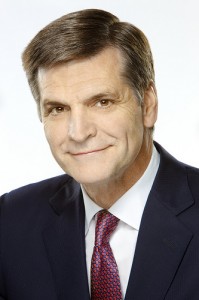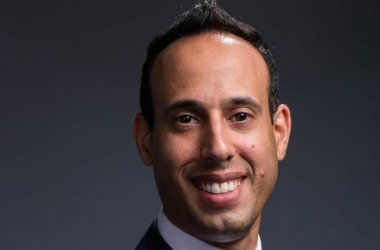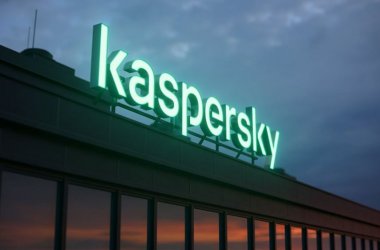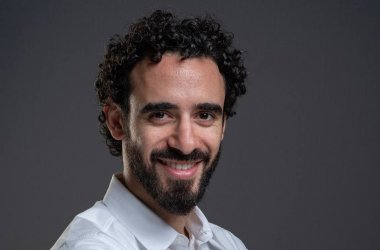 Bill Teuber bleeds blue and white. Having served 17 years for EMC, the Vice Chairman took on further responsibilities in 2013, namely business development in emerging markets. The IT veteran may have passed the 60 mark but his energy remains high, as does his hopes for EMC and the Middle East.
Bill Teuber bleeds blue and white. Having served 17 years for EMC, the Vice Chairman took on further responsibilities in 2013, namely business development in emerging markets. The IT veteran may have passed the 60 mark but his energy remains high, as does his hopes for EMC and the Middle East.
Just how significant is the Middle East to EMC’s overall plans?
It’s certainly significant. It has a lot of opportunities and it continues to expand in some of the verticals that we’re best at so we think it’s quite important. It’s not the only emerging market that’s important, that should be noted, but we see a high value here.
You’ve recently taken on new responsibilities at EMC, what have you learned about this region in that time?
I’ve been at EMC for a very long time, I was the CFO for a very long time, and so emerging markets are nothing new to me. I’ve spent a lot of time outside of the office and I’ve spent a lot of time in places like Dubai, China, and Russia. It’s not new to me per se. I’m quite positive on the opportunities for EMC here, I think we’re going to change more reactively in the countries that are already large but have a keen emphasis on growth. The Middle East is one of those areas, we’re aware of that. In a lot of these countries, such as the UAE, there’s a lot of old data centre technology, so the amount of forced change in their infrastructures is quite dramatic. This is something worth tapping into.
What’s your forecast for EMC’s growth in the Middle East?
We recently gathered our reports and I can say we want to grow faster and we want to take market share. If you look at any market share externally, you’ll see we continue to grow and take our competitors’ market share. You have to use a range of metrics to look through your data and see where you’re doing well or where you’re losing ground.
In terms of growth and definition, what will people be saying about EMC in 5 years?
Technology trends will continue to grow and evolve, and so will we. EMC was of course known as a storage company before, and in 2006 we bought RSA, a security company, which we knew would be important for our customers going forward.
We invest 11.5% of revenue in R&D each year, so we’re focused and committed on many areas now. About a year and a half ago we bought Green Plum which opened up data areas for us, this whole focus on big data is the future. In five years from now we’ll all be on the big data wagon. It’s growing every day and a lot is unstructured.
Now, as we look forward, the next big thing is software defined data centres. We believe that’s the next big pick. We will continue to be strategic leaders and this is thanks to the major transformation we’ve gone through over the last 10 years. In less than 10 years we’ve gone from a storage provider to one of the leading strategic innovators.
The hype of cloud far outweighs the adoption right now and many have voiced concerns on security and loss of data control. To what extent do you agree with these concerns?
I think the cloud is inevitable. Some smaller countries may have privacy issues because of government regulations, but that won’t stop the majority of business enterprises moving into the cloud. People say security is one area that worries people, but in a lot of cloud environments the security is greater than the traditional data centre.
One area of concern may be the public cloud, but there’s no doubt that companies are adopting private cloud. You can control yourself in private clouds quite easily. Moving to the cloud is a journey, virtualising your servers is the first step in that. Even EMC is only about 90% done on that journey towards the private cloud. There’s a lot of work to do before we operate fully in the private cloud.
We see a lot of the growth in cloud environments actually coming from start-ups and SMBs because they don’t have to worry about building an infrastructure – they’re just letting someone else do it. Then we have companies like us who will form a private cloud but will use a public cloud application. So everyone will be using elements of public cloud, that’s what we call hybrid cloud. These trends are here to stay. I don’t think the security issue will be one that will put a stop on it – I don’t see it being an impediment.
So will 2013 be the year of cloud adoption?
I think so, if you go to a shop and say “Have you begun to virtualise?” and they say no, I’d be really shocked. The reasons for doing it now are so strong. You have all the economical savings of your infrastructure, and now all the big companies are providing the ability to have applications working in these environments. Merging that with IT, you’re giving companies the ability to save costs and use business applications – it’s ideal.
Now we’re talking about a new type of skills set coming through as well, this technology brings a whole new role; everywhere you go you get data centre science interest. There’s a huge amount of change in the industry. You can’t stay still and say “I’m not adopting cloud” – you’ve got to be there or you won’t take any of the benefits. If you stay with your legacy hardware, you can’t move into the future, and this is the future.
What does 2013 have in store for EMC?
Growth, investment and opportunity. We invested a lot in R&D and we will continue to invest, look through the market place, expand what we do for our customers and make sure we understand what’s important to them. In terms of the IT spend for 2013, it depends who you talk to – but EMC should continue to build.





